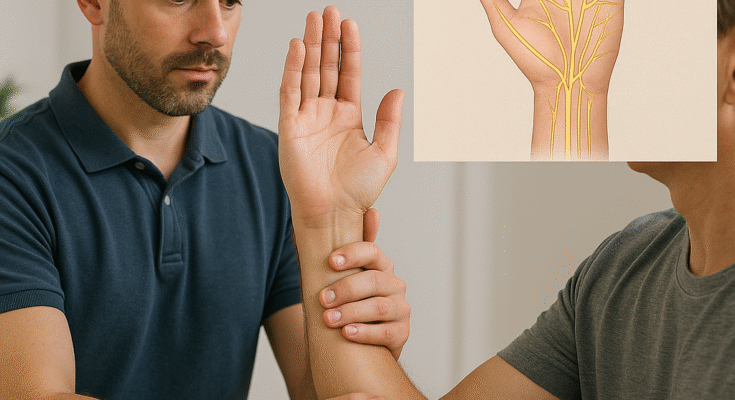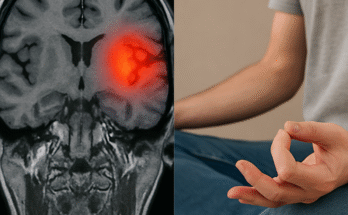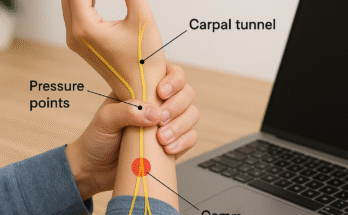Understanding Hand Numbness: Causes, Treatments, and When to Seek Help
That unsettling “pins and needles” sensation in your hands—often described as numbness—is something most of us have experienced. Whether it’s waking up with a “dead arm” after sleeping in an awkward position or losing feeling in your fingers during a long drive, temporary numbness is usually harmless. But when numbness lingers, spreads, or disrupts daily life, it’s time to pay attention. Let’s unravel the mysteries of hand numbness, explore its causes, and uncover practical solutions to restore comfort and function.
What Is Hand Numbness?
Numbness, or paresthesia, is an abnormal sensation often likened to tingling, prickling, or a loss of feeling. While it commonly affects the hands, feet, arms, or legs, persistent numbness in the hands can signal an underlying health issue. Temporary numbness from pressure on a nerve (like resting your elbow on a desk too long) fades quickly. But recurring or prolonged numbness demands medical attention—it could be your body’s way of waving a red flag.
Diagnosing the Root Cause
Treatment begins with pinpointing the source. Doctors use a blend of patient history, physical exams, and advanced tests to crack the case:
-
Blood Tests: Check for diabetes, vitamin deficiencies (like B12 or E), or thyroid issues.
-
Imaging: X-rays, MRIs, or CT scans reveal nerve compression, spinal issues, or tumors.
-
Nerve Studies: Electromyography (EMG) measures electrical activity in muscles, while nerve conduction tests assess signal speed.
-
Spinal Tap: A lumbar puncture analyzes cerebrospinal fluid for infections or multiple sclerosis.
Specialists like neurologists or rheumatologists may join the investigation if systemic diseases or autoimmune disorders are suspected.
Common Causes of Hand Numbness
1. Nerve Compression Syndromes
-
Carpal Tunnel Syndrome: The median nerve in the wrist gets squeezed, causing numbness in the thumb, index, and middle fingers. Common in repetitive tasks like typing.
-
Ulnar Nerve Entrapment: The “funny bone” nerve compressed at the elbow leads to pinky and ring finger numbness.
-
Radial Nerve Injury: Pressure on this nerve (think falling asleep with your arm over a chair) triggers numbness in the back of the hand.
2. Peripheral Neuropathy
Damage to peripheral nerves—often from diabetes, alcohol abuse, or vitamin deficiencies—causes numbness, burning, or weakness. High blood sugar slowly erodes nerves, making early diabetes management critical.
3. Autoimmune and Inflammatory Conditions
-
Rheumatoid Arthritis: Inflamed joints compress nerves.
-
Multiple Sclerosis (MS): Immune attacks on nerve coatings disrupt signals.
-
Lupus: Systemic inflammation affects nerves and blood vessels.
4. Infections and Toxins
Lyme disease, shingles, or HIV can damage nerves. Toxins like heavy metals, chemotherapy drugs, or pesticides also play a role.
5. Spinal Issues
Herniated discs, spinal stenosis, or degenerative disc disease in the neck (cervical spine) pinch nerves, radiating numbness to the hands.
6. Lifestyle Factors
Repetitive motions (gardening, gaming), poor posture, or prolonged vibration (using power tools) strain nerves.
Treatment Options: From Creams to Surgery
1. Address Underlying Conditions
-
Diabetes Control: Stabilizing blood sugar can halt or reverse early neuropathy.
-
Vitamin Supplements: B12 injections or oral supplements repair nerve damage from deficiencies.
-
Alcohol Cessation: Quitting drinking improves nerve health and overall wellness.
2. Medications
-
Topical Relief: Capsaicin cream (from chili peppers) blocks pain signals; lidocaine patches numb localized areas.
-
Antidepressants/Anti-Seizure Drugs: Duloxetine or gabapentin calm overactive nerves.
3. Physical Therapy and Ergonomics
-
Nerve Gliding Exercises: Gentle movements free trapped nerves.
-
Ergonomic Adjustments: Wrist splints, keyboard pads, or posture correctors reduce strain.
4. Surgery
For severe carpal tunnel or spinal compression, procedures like nerve decompression or disc replacement restore function.
5. Alternative Therapies
-
Acupuncture: Stimulates nerve pathways and blood flow.
-
Yoga/Stretching: Reduces muscle tension and improves circulation.
When to Seek Immediate Help
While most numbness isn’t urgent, certain symptoms demand swift action. Go to the ER if you experience:
-
Sudden numbness with confusion, dizziness, or slurred speech (possible stroke).
-
Loss of bladder/bowel control or leg weakness (signaling spinal cord injury).
-
Severe headache with numbness (indicative of migraine or aneurysm).
Schedule a doctor’s visit if numbness:
-
Affects only specific fingers (like the pinky and ring finger).
-
Worsens with repetitive tasks (typing, lifting).
-
Comes and goes unpredictably.
Preventing Hand Numbness: Proactive Steps
-
Move Frequently: Take breaks during repetitive tasks. Stretch wrists and shoulders hourly.
-
Strengthen and Protect: Use wrist braces during high-risk activities (cycling, weightlifting).
-
Nutrition Matters: Eat omega-3-rich foods (salmon, walnuts) and antioxidants (berries, spinach) to support nerve health.
-
Manage Stress: Chronic tension tightens muscles, compressing nerves. Try meditation or deep breathing.
The Bigger Picture: Why Nerves Matter
Nerves are your body’s communication network. When they’re damaged, messages between brain and body get scrambled. Ignoring numbness risks permanent damage—like leaving a phone charger frayed until it sparks. Early intervention preserves function and quality of life.





